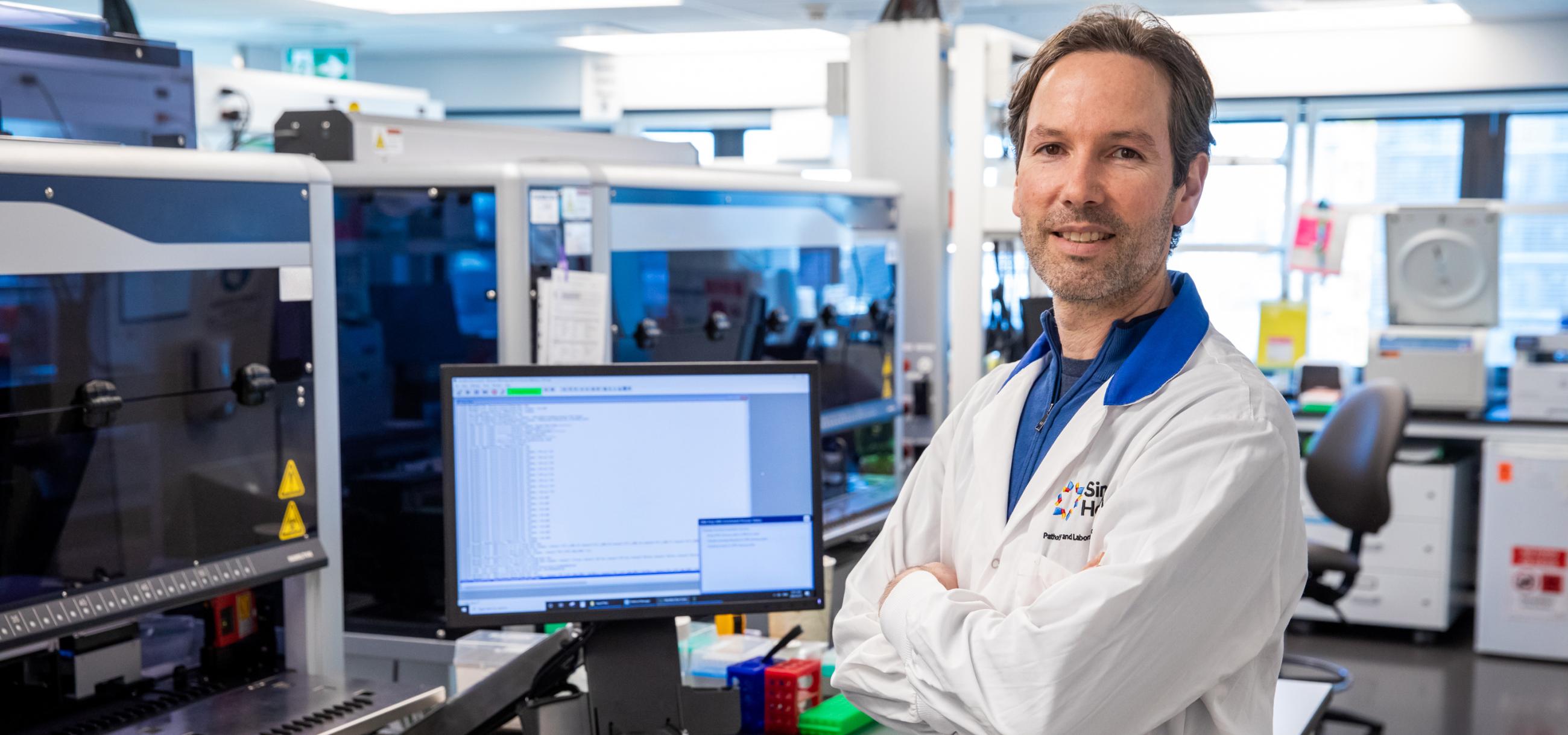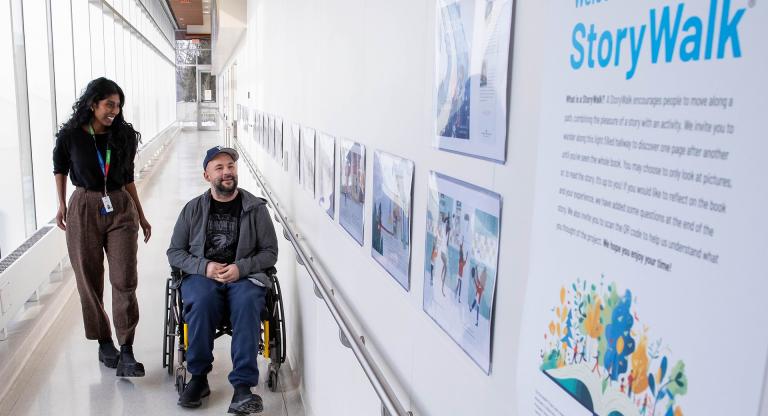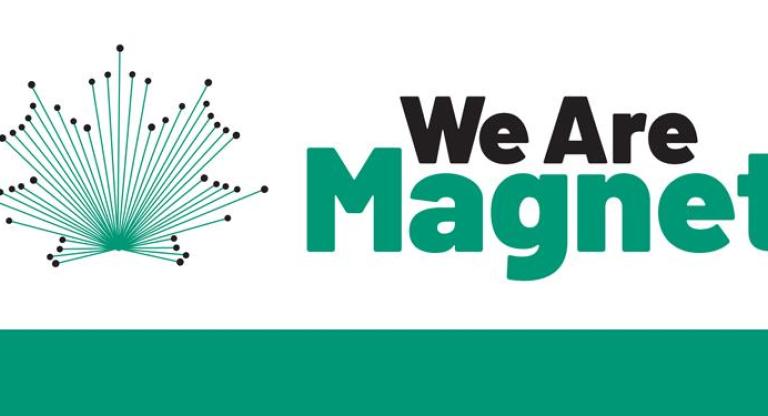Canadian Genomic Data Sharing Effort Gets $7M Government Funding Boost

In a major push to harness the power of genomic data for healthcare, the Canadian Genomic Data Commons (CGDC) initiative, co-led by Sinai Health’s Dr. Jordan Lerner-Ellis, has secured over $7.4 million in federal and provincial funding.
With support from the Canadian Foundation for Innovation and the provincial governments of Alberta, Manitoba, and Ontario, the CGDC aims to establish a national infrastructure promoting the free flow of genomic data between clinicians, other healthcare providers and researchers.
“As genome sequencing becomes more affordable, most genomic data will be generated in the clinical setting,” said Dr. Lerner-Ellis, Director of Advanced Molecular Diagnostics Laboratory at Mount Sinai Hospital and an Associate Member at the Lunenfeld-Tanenbaum Research Institute at Sinai Health.
“There is still so much we don’t know about the relationship between genetics and disease and if we don’t find a way to share that data for clinical and research purposes, then there’s a risk of that data being lost,” he said.
The CGDC will develop databases, build robust IT systems and analytical tools, and develop secure data-sharing protocols that ensure the privacy and confidentiality of patient information.
The initiative, co-led by Dr. Kym Boycott, Senior Scientist at the CHEO Research Institute in Ottawa, and a Professor of Pediatrics at the University of Ottawa, brings together hundreds of clinical geneticists and informatics experts from across the country with more than 20 clinical laboratories participating in the project.
“Genomic data hold clues to health and disease, but its interpretation remains a challenge,” said Dr. Boycott, who is also Chair of Genetics and a Clinical Geneticist at CHEO.
“The CGDC is an essential research platform for sharing and interpreting genomic data, identifying mutations that lead to disease, and establishing new gene-disease associations that will ultimately help us better diagnose and care for patients and families,” she said.
In general, larger amounts of available data enhance the ability of computer programs to analyze individual genomes and identify mutations that could lead to disease. Instead of allowing valuable genomic data to remain isolated and underused in clinical genetic testing laboratories nationwide, Dr. Lerner-Ellis is committed to unlocking their potential, with implications for Canada’s global standing in biomedical research.
“Developing new technologies for sharing and interpreting genomic data is essential for advancing research that can lead to major improvements in medicine”, said Dr. Lerner-Ellis, who is also an Associate Professor in the University of Toronto’s Department of Laboratory Medicine & Pathobiology.
“It is critical we evaluate data generated in the clinical environment, share that data so that discoveries can be made, and find ways to apply those discoveries in real-time so that patients can benefit while protecting privacy,” he said.
Seamless flow of data between clinicians and researchers will accelerate efforts to untangle the relationship between genetic variation and disease to improve diagnosis and develop personalized treatments.
There are millions of genetic variations between the genomes of any two individuals, but how personal genomes contribute to disease remains an open question. The answers are sometimes easier to find for the so-called rare diseases, such as cystic fibrosis and Rett syndrome, typically caused by a defect in a single gene. However, even in these cases, other variants in the genome may impact disease severity. The problem gets more complicated for common diseases such as cancer or heart disease, whose origin and severity are impacted by dozens, if not hundreds of gene variants.
It doesn’t help that the existing research databases contain inaccuracies and are also incomplete. Dr. Lerner-Ellis and researchers like him believe that having access to more data can at least partially overcome these challenges. For example, if a new disease-linked variant is discovered in a clinic in one part of the country, that information could be useful for individuals from across Canada who carry the same variant.
To begin to tackle these gaps in data, the CGDC will expand the national database of genetic variation, the Canadian Open Genetics Repository, which catalogues known relationships between variants and disease to aid in future diagnoses. Another effort is to leverage a database of variant frequencies developed at the Broad Institute in Boston, U.S., to create the Canadian Genome Aggregation Database (gnomAD-Canada). Tracking variant frequencies across the population can provide critical information for predicting disease risk, especially for underrepresented groups. These databases represent an initial move towards enabling Canada’s contribution to global efforts of sharing variant data.
As well as data sharing, the team will also develop purpose-made software tools for researchers and clinicians to enable the use of the data for various applications. These tools will enable detection of disease-causing variants, discovery of new gene-disease associations and more effective treatment plans by connecting patients with clinical trials that are most relevant to their specific conditions. The CGDC will also introduce the first integrated consent platform, allowing Canadians to participate in research projects connected to their genomic data.
The CGDC will also leverage previous investments to develop Genomics4RD core infrastructure for rare disease genomic analysis and data sharing, developed by Dr. Boycott’s Care4Rare Canada Consortium. Dr. Boycott said that the consortium will benefit immensely from CGDC protocols and tools, enabling greater participation and more discoveries from genomic data.
The CGDC will be created in partnership with other data-sharing projects such as the All for One Precision Health initiative and the Pan-Canadian Human Genome Library.
“The Canadian Genomic Data Commons will play a crucial role in advancing personalized medicine in Canada, offering new insights into the genetic basis of diseases and fostering the development of targeted therapies, “said Dr. Anne-Claude Gingras, Director of LTRI and Vice President of Research for Sinai Health.












